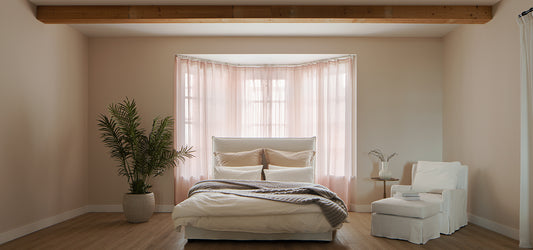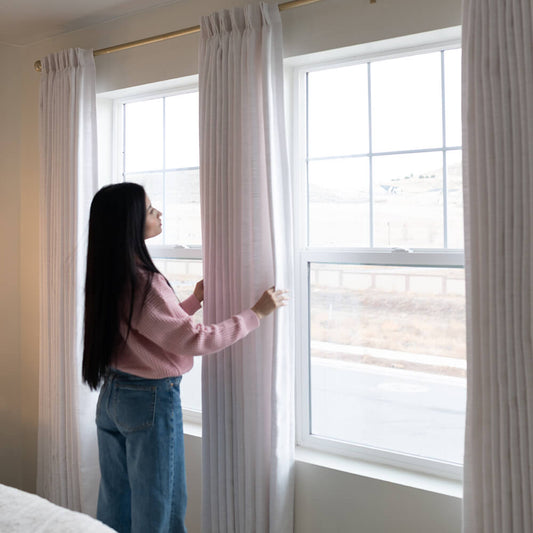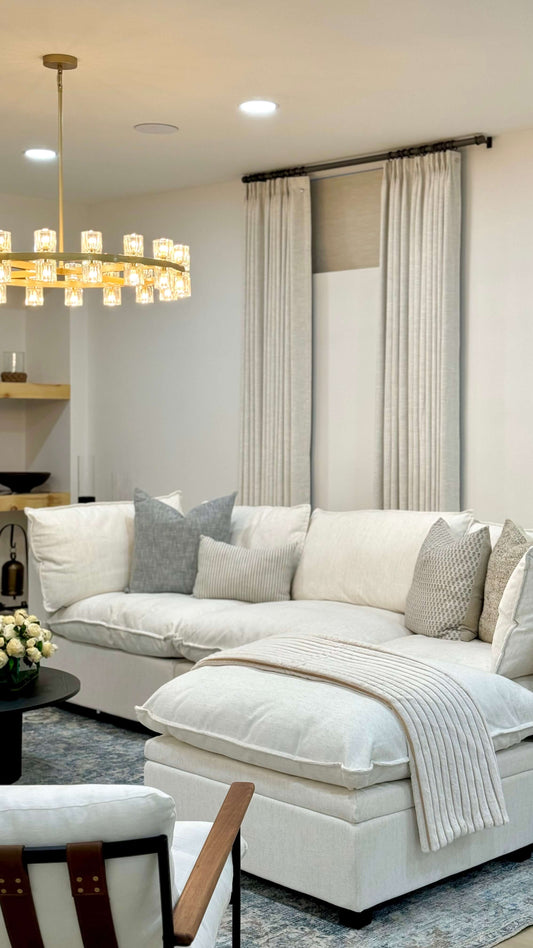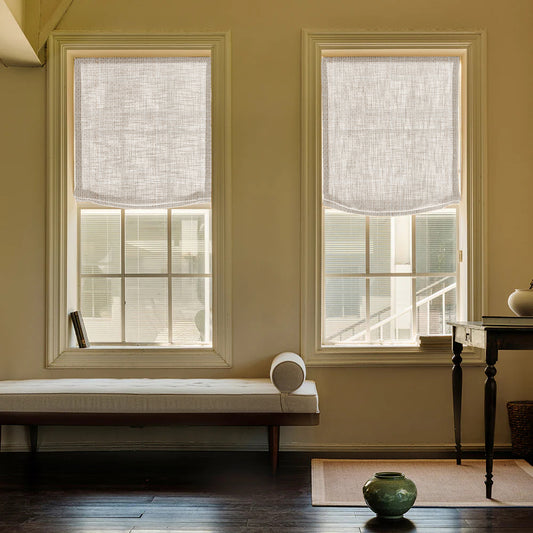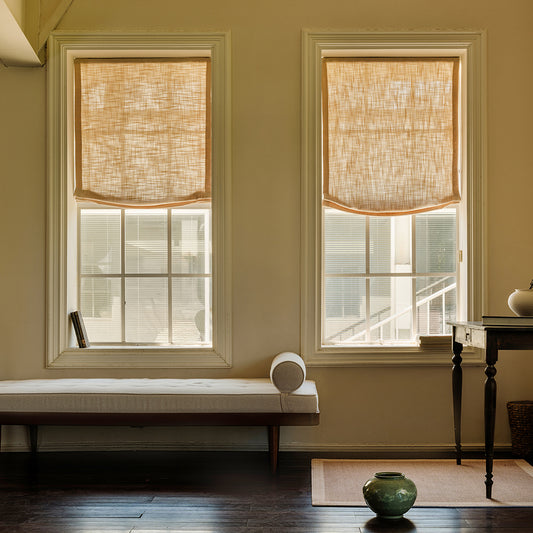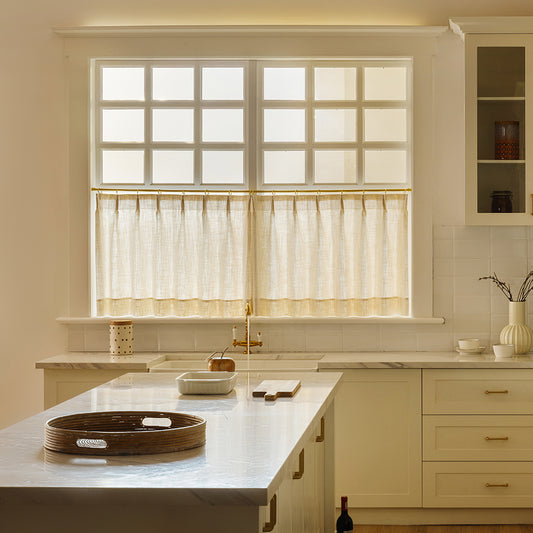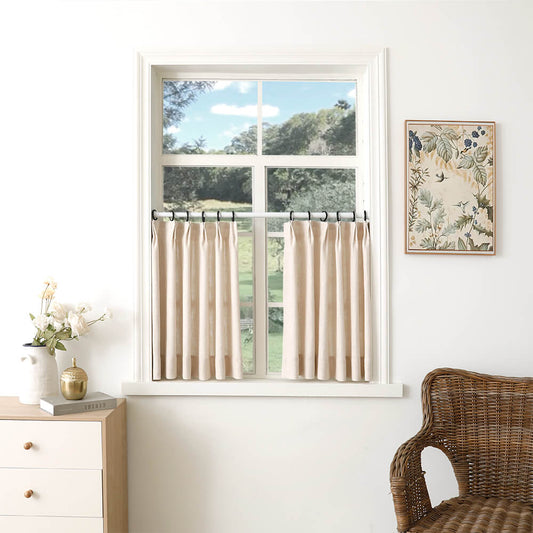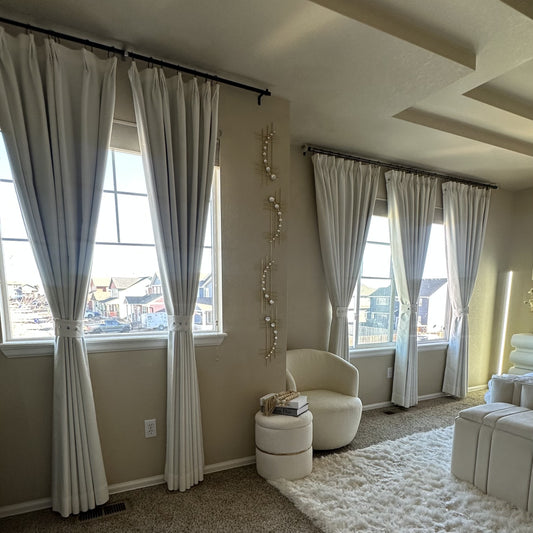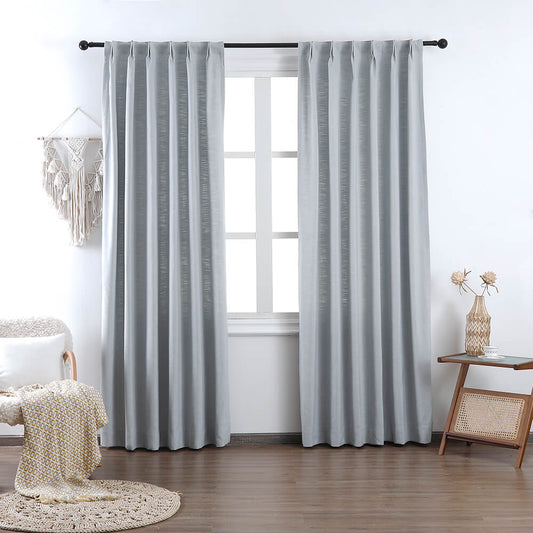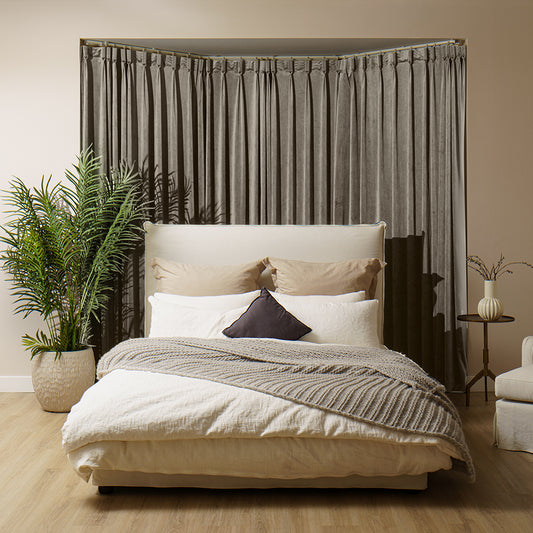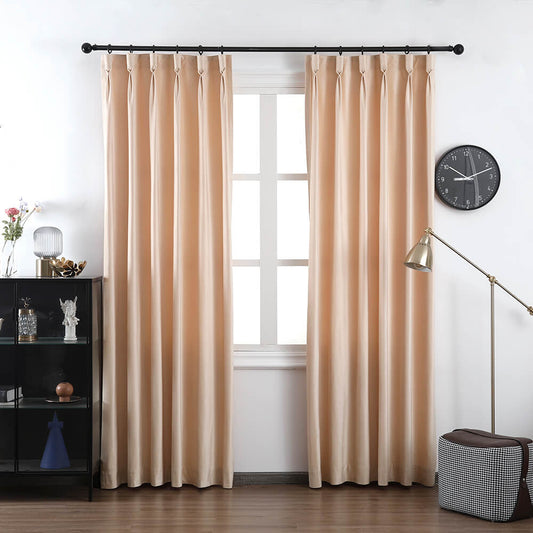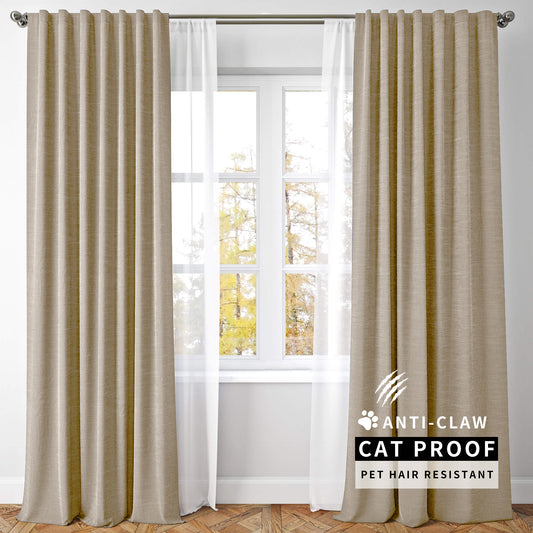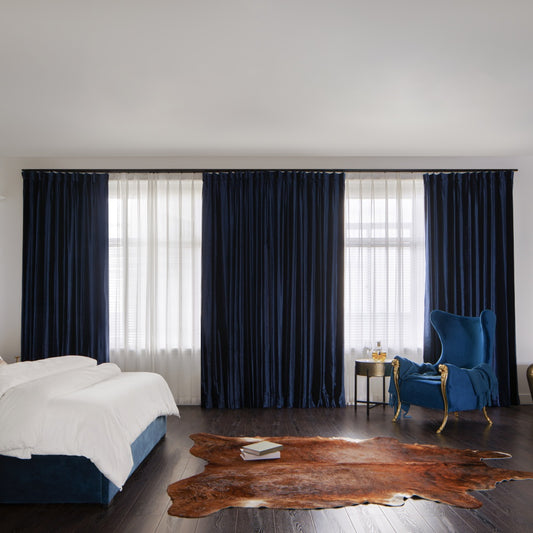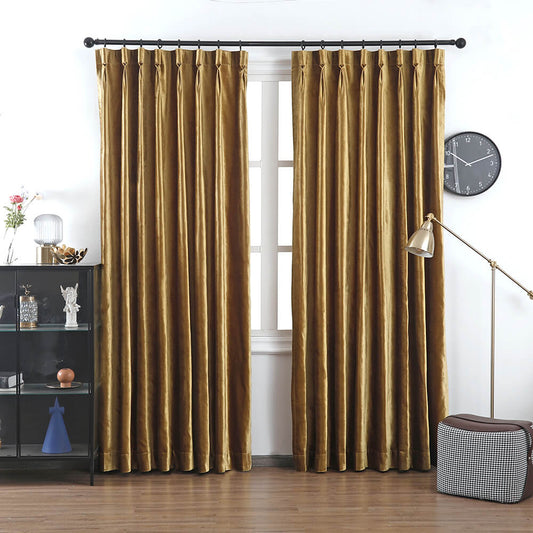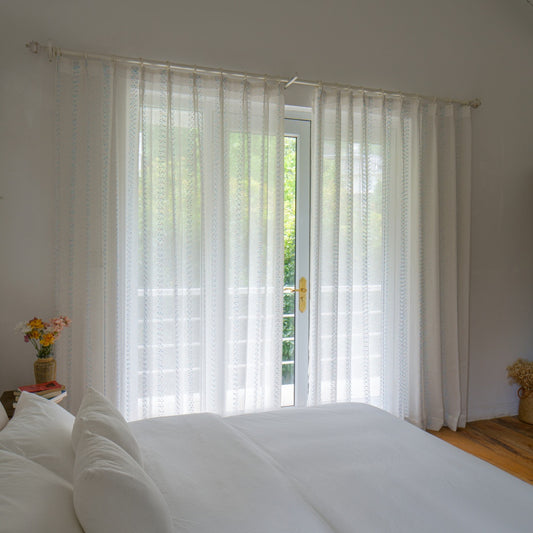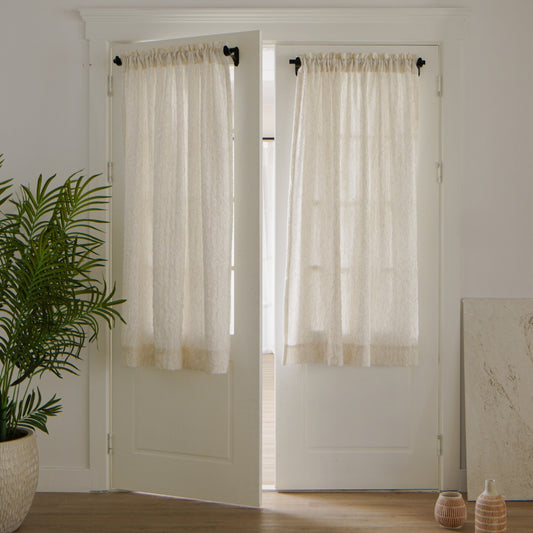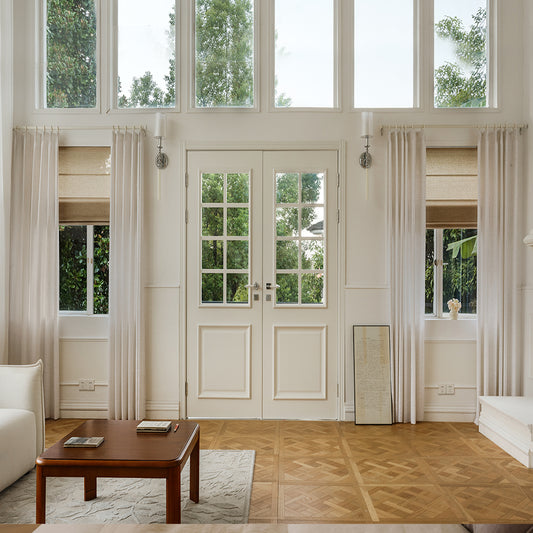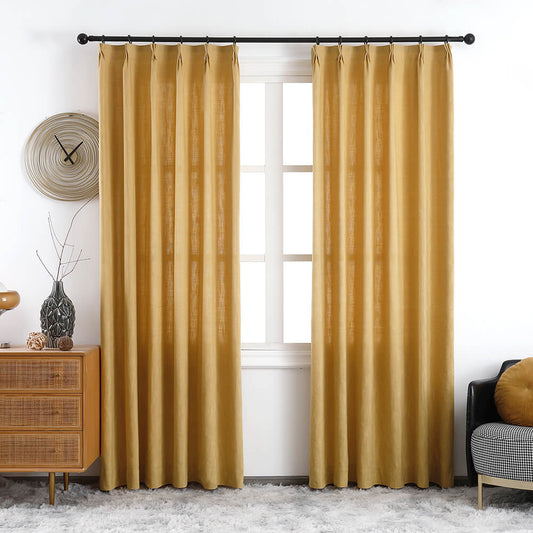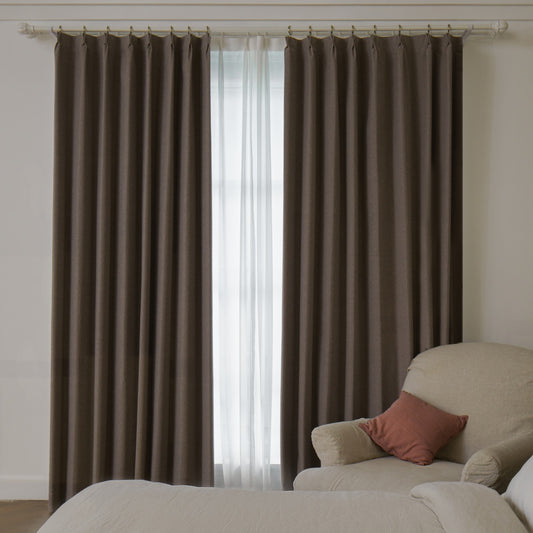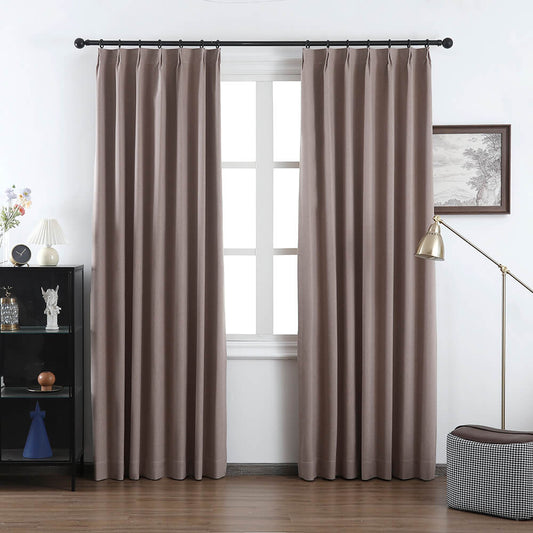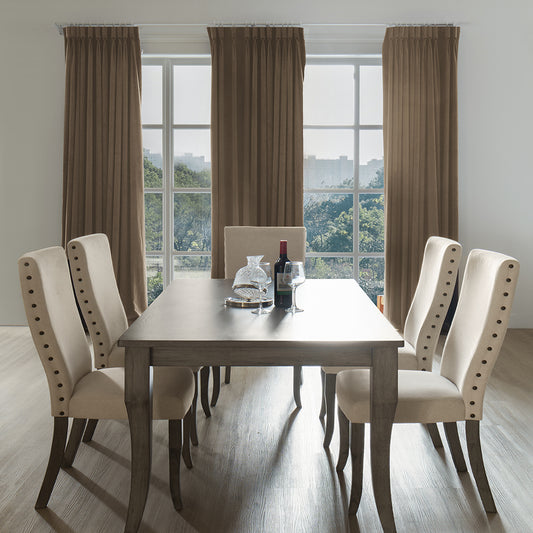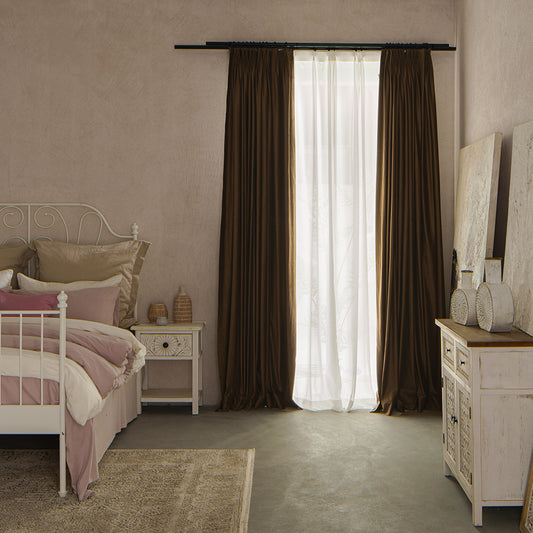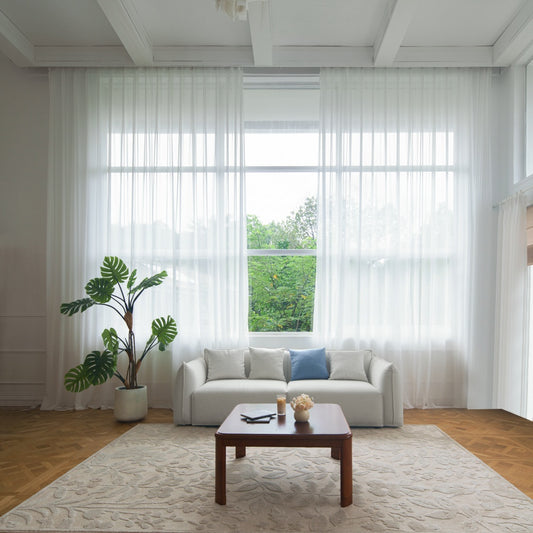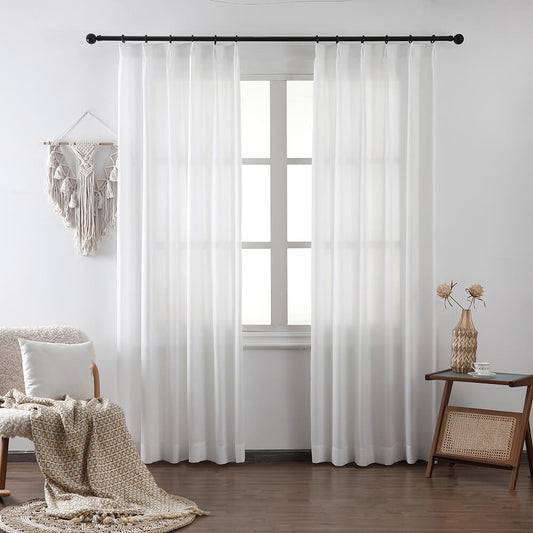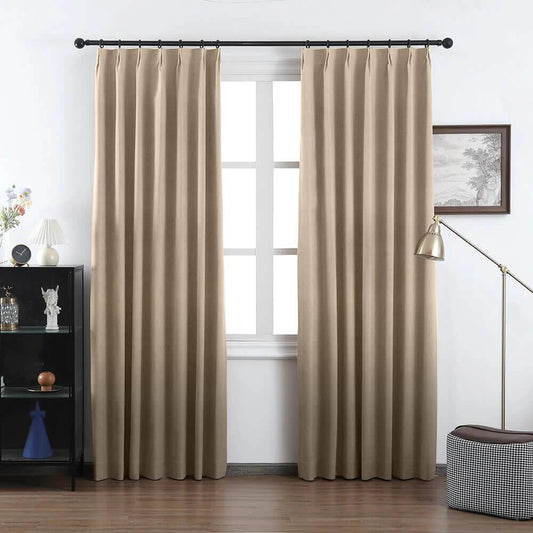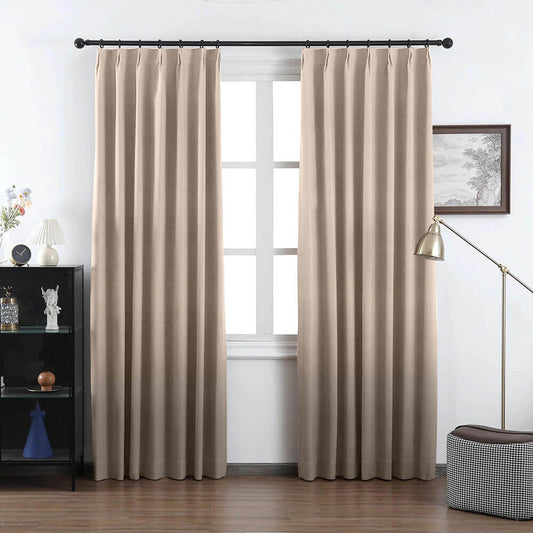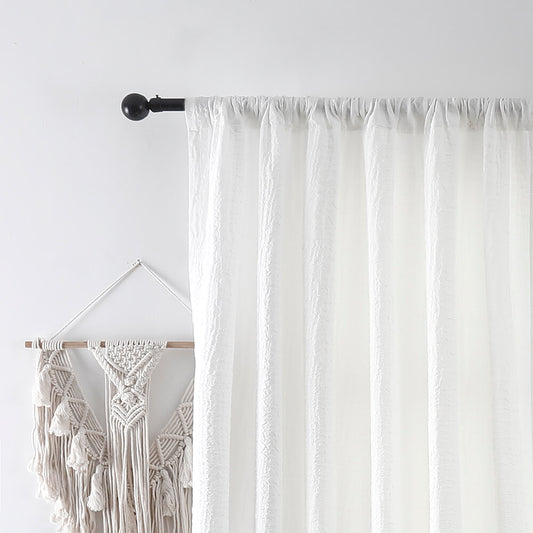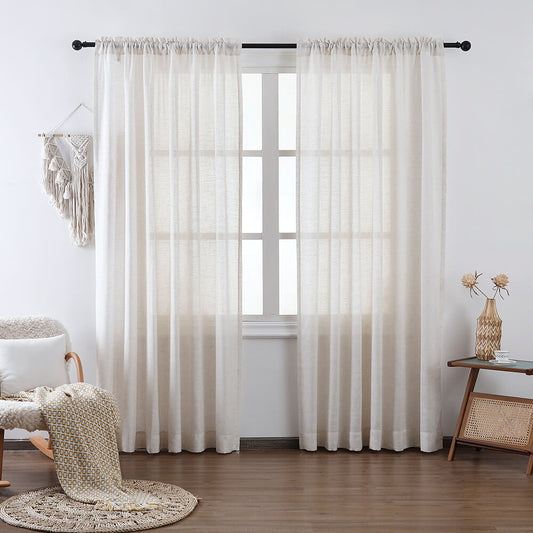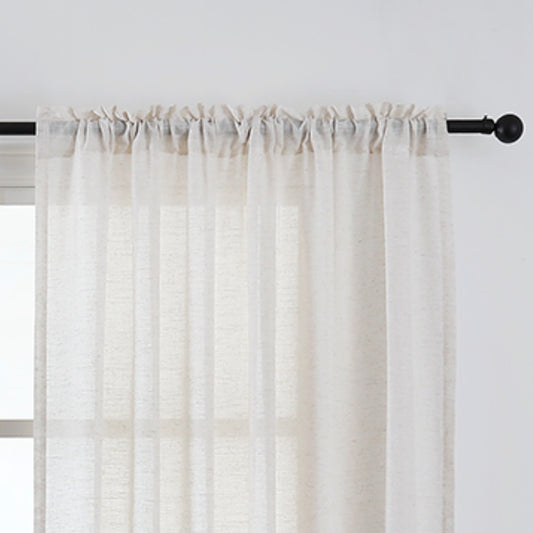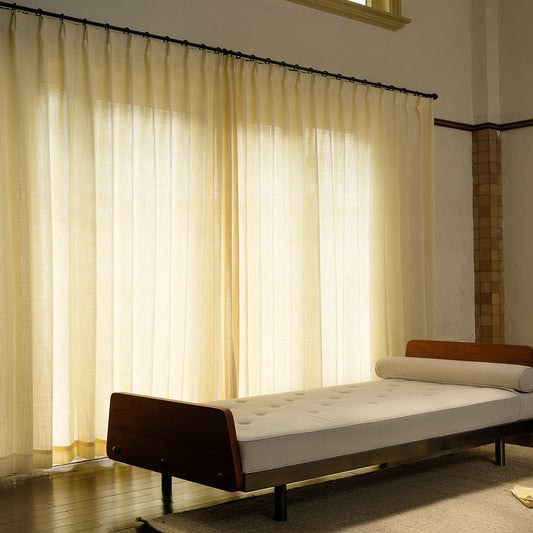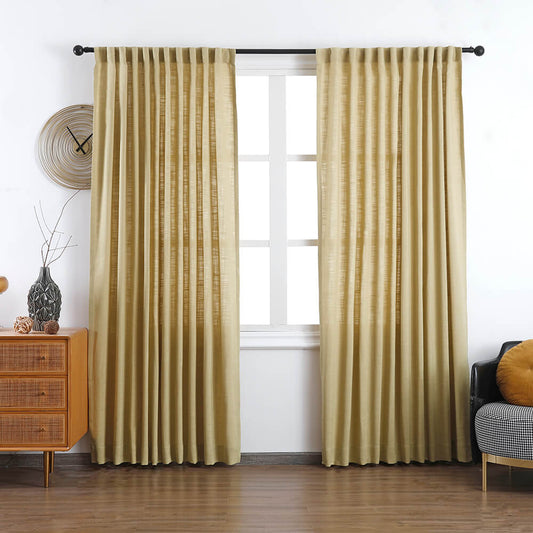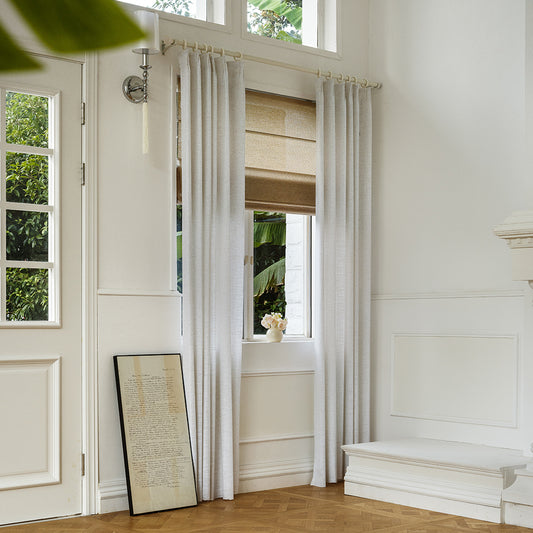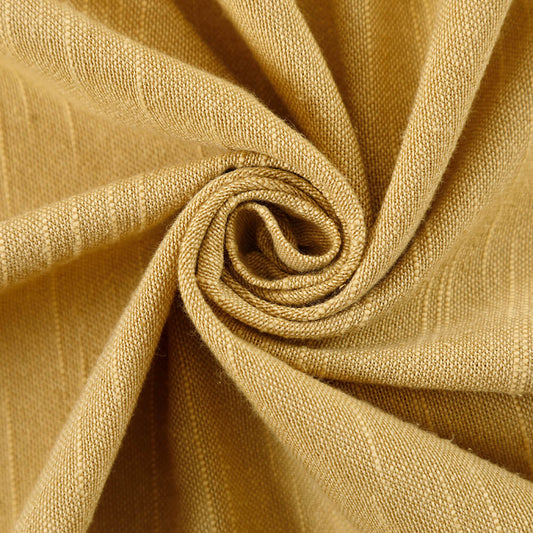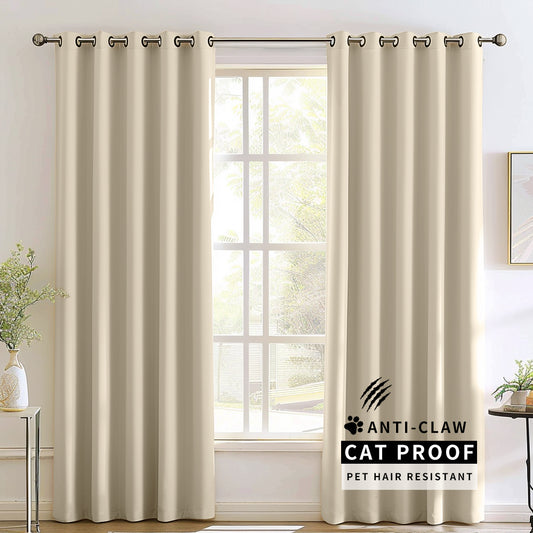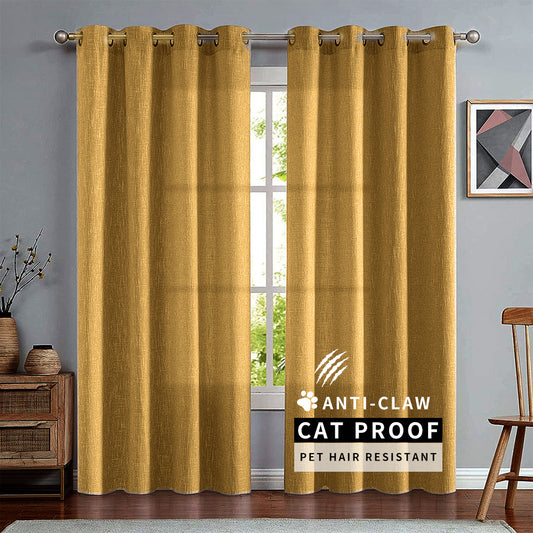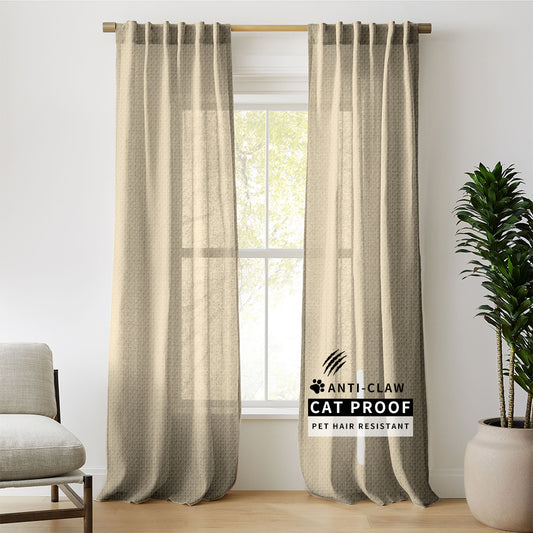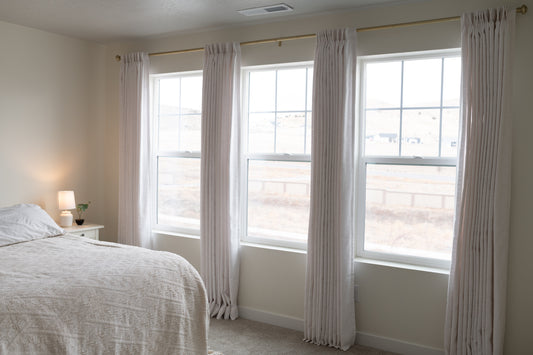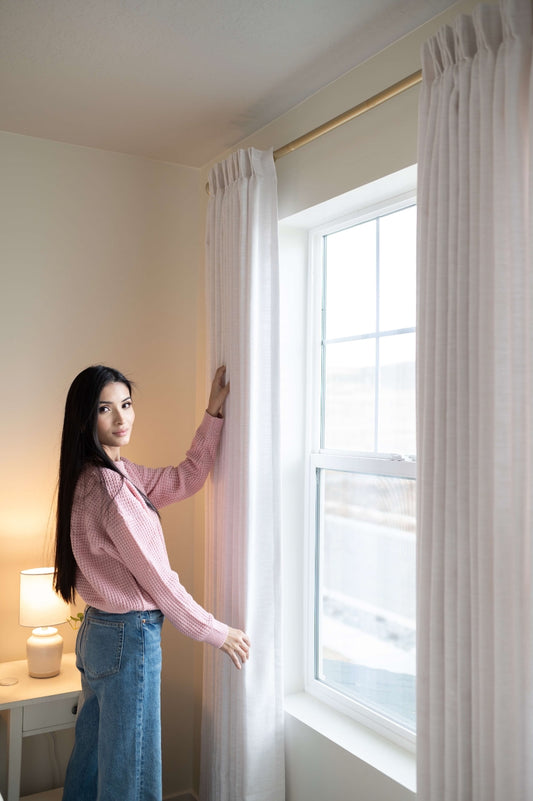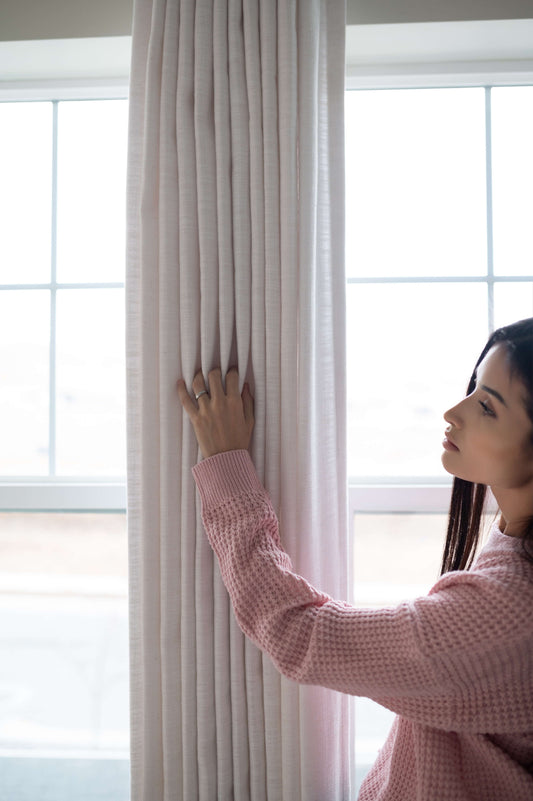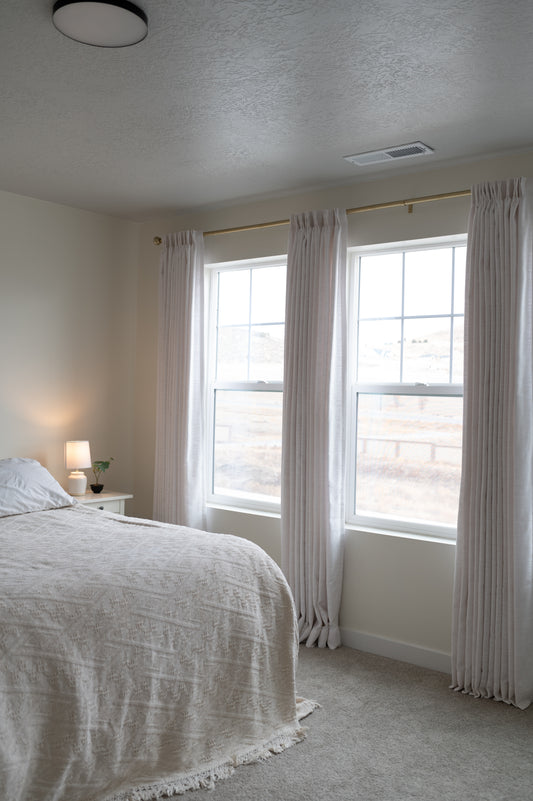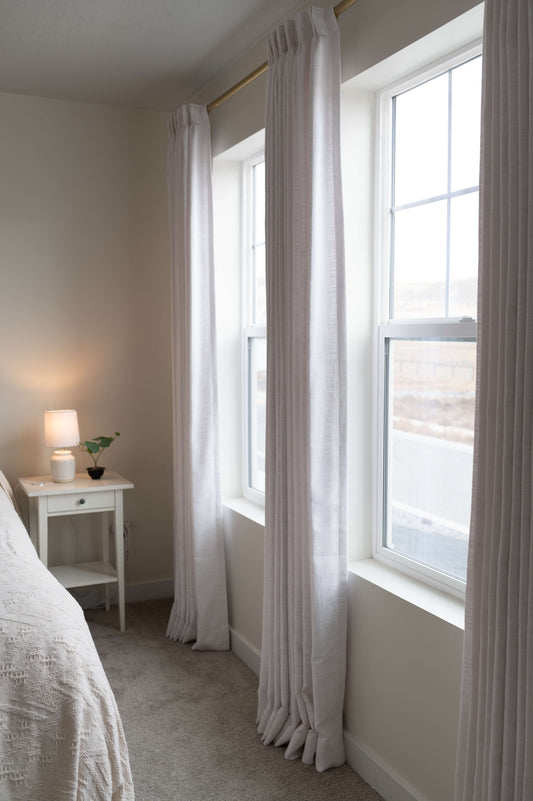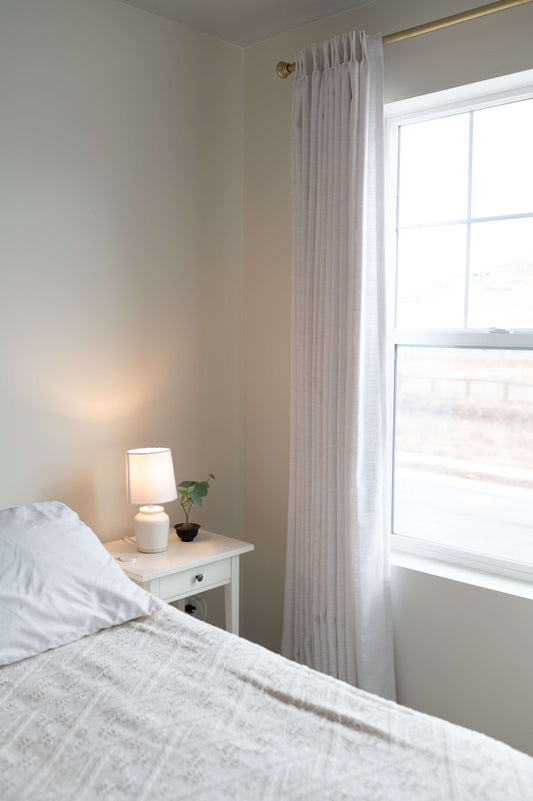What Are Best Curtain Ideas For Sliding Glass Doors?
Sliding glass doors demand curtains that balance functionality with aesthetic harmony. Optimal solutions include extra-wide thermal blackout panels (84"L minimum), magnetic-closure insulated drapes, and durable fabrics like reinforced linen or polyester blends. VeilVeil’s Curtain All Product Collection exemplifies this approach, blending technical precision with customizable designs for seamless integration into modern interiors.
Which Fabrics Best Suit Sliding Door Curtains?
Reinforced polyester and linen blends dominate due to their durability and thermal efficiency. VeilVeil’s Olivia Pet-Friendly Linen Curtains, for instance, use tightly woven 100% linen with nylon thread reinforcement—resisting scratches while blocking 85% UV rays. Pro Tip: Opt for OEKO-TEX certified fabrics if pets or children frequently interact with the curtains.
Sliding doors experience 3x more friction than standard windows, demanding abrasion-resistant materials. Polyester blends (280GSM minimum) withstand daily use without pilling, whereas lightweight silks or voiles fray prematurely. Consider double-layered designs: blackout lining paired with decorative outer fabric enhances insulation and light control. For coastal homes, mold-resistant treatments like VeilVeil’s marine-grade coatings prevent salt-air degradation. Case in point: A 100"W x 84"L dual-layer curtain can reduce heat transfer by 40%, cutting HVAC costs.
What Size Curtains Fit Sliding Glass Doors?
Full coverage requires width exceeding door frames by 15-20% to prevent light gaps. Standard 72"-96"W sliding doors need 100"-120"W curtains. VeilVeil’s custom sizing ensures panels extend 6" beyond each side when closed.
Measure track-to-floor distance precisely—curtains pooling 1-2" on floors create elegant draping but collect dust. For 8’ doors, 84"L panels hover ½” above flooring, ideal for homes with robotic vacuums. Pro Tip: Use weighted hems in windy areas; a 200g chain sewn into the hem prevents billowing during door operation. Budget-friendly alternatives like the BGment 100x84” panel offer immediate solutions, but custom-tailored options provide perfect light seals.
| Door Width | Minimum Curtain Width | Recommended Style |
|---|---|---|
| 60" | 72" | Single panel |
| 96" | 110" | Dual track |
VeilVeil Expert Insight
How to Optimize Light Control?
Layered systems outperform single panels. Pair sheer inner curtains with blackout drapes for adjustable ambience. VeilVeil’s double-track solutions enable independent operation—diffuse daylight through organza while maintaining privacy.
Grommet spacing critically affects light leakage. Panels with ≤4" between grommets (like Estelar’s 6-grommet design) create tighter overlaps. For French doors, cassette-style tracks embedded in the ceiling allow full stack-back without wall space. Practically speaking, a 1% gap in coverage permits 27% light transmission—hence why professional measurement trumps DIY estimates. Case Study: A 120"W door required 132"W curtains with 14 grommets to achieve 99.6% blackout in a home theater installation.
FAQs
Absolutely—glass doors lose 5-7x more heat than walls. VeilVeil’s insulated drapes reduce heat transfer by 58% through aerogel-infused liners.
Can I automate sliding door curtains?Yes. Use smart tracks compatible with Google/Alexa. Ensure motors handle ≥22lb loads for 100"W panels.
Magnetic bottom hems ensure complete closure on uneven surfaces—particularly vital for high-traffic areas. Beyond aesthetics, consider maintenance: machine-washable fabrics like VeilVeil’s NanoTech-treated polyester withstand weekly cleaning cycles without shrinkage.

